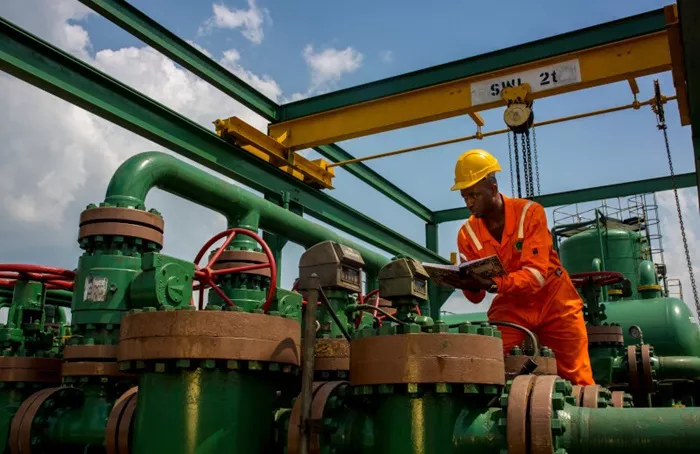The Petroleum and Natural Gas Senior Staff Association of Nigeria (PENGASSAN) has expressed strong reservations about the recent Executive Order signed by President Bola Tinubu aimed at boosting offshore oil and gas production.
The new directive, titled “The Upstream Petroleum Operations Cost Efficiency Incentives Order (2025),” introduces performance-based tax incentives for upstream operators who achieve verifiable cost savings against industry benchmarks. Notably, it grants a 20 percent tax credit to oil production companies to reduce upstream production costs.
However, PENGASSAN criticized this approach, warning that the tax incentives alone may not effectively lower production costs unless the persistent security challenges facing the sector are adequately addressed.
At a press briefing in Abuja on Monday, PENGASSAN President Festus Osifo highlighted insecurity as a key factor inflating operational expenses. “The cost of securing oil facilities has become prohibitive,” he said. “International oil companies are exiting Nigeria mainly due to these security risks, which include safeguarding installations both onshore and offshore.”
Osifo detailed the significant financial burden placed on operators, citing the example of offshore installations requiring multiple security vessels manned by naval personnel—expenses paid daily by the companies. “In other oil-producing countries, the government provides this security. Here, the operators bear the cost,” he stressed.
Beyond security, PENGASSAN voiced concerns that certain provisions of the Executive Order could undermine the enforcement of Nigeria’s Content Development Act. Specifically, the order suggests the Nigerian Content Development and Monitoring Board (NCDMB) adopt a flexible enforcement approach, which Osifo firmly opposed. “As long as the NCDMB Act is law, it must be fully obeyed. An executive order cannot override existing legislation,” he asserted.
On the downstream sector, PENGASSAN lamented ongoing exploitation of Nigerian consumers. Despite a recent drop in crude oil prices to about $65 per barrel, fuel marketers have not adjusted pump prices accordingly. The association faulted the Nigerian Midstream and Downstream Petroleum Regulatory Authority (NMDPRA) for neglecting its duty to enforce price reductions and protect consumers under deregulation.
With geopolitical tensions between Israel and Iran threatening to push crude prices higher, Osifo called on the government and regulators to prevent unjustified hikes in fuel prices. “The regulator must act impartially to ensure Nigerians are not exploited,” he said.
Responding to inquiries about a dispute with Sterling Oil Company, Osifo revealed that the firm admitted to violating Nigerian Content law and pledged to rectify the breach.
PENGASSAN’s critique underscores the complex challenges in balancing policy incentives with security realities and regulatory enforcement to ensure a sustainable and fair Nigerian oil and gas industry.


